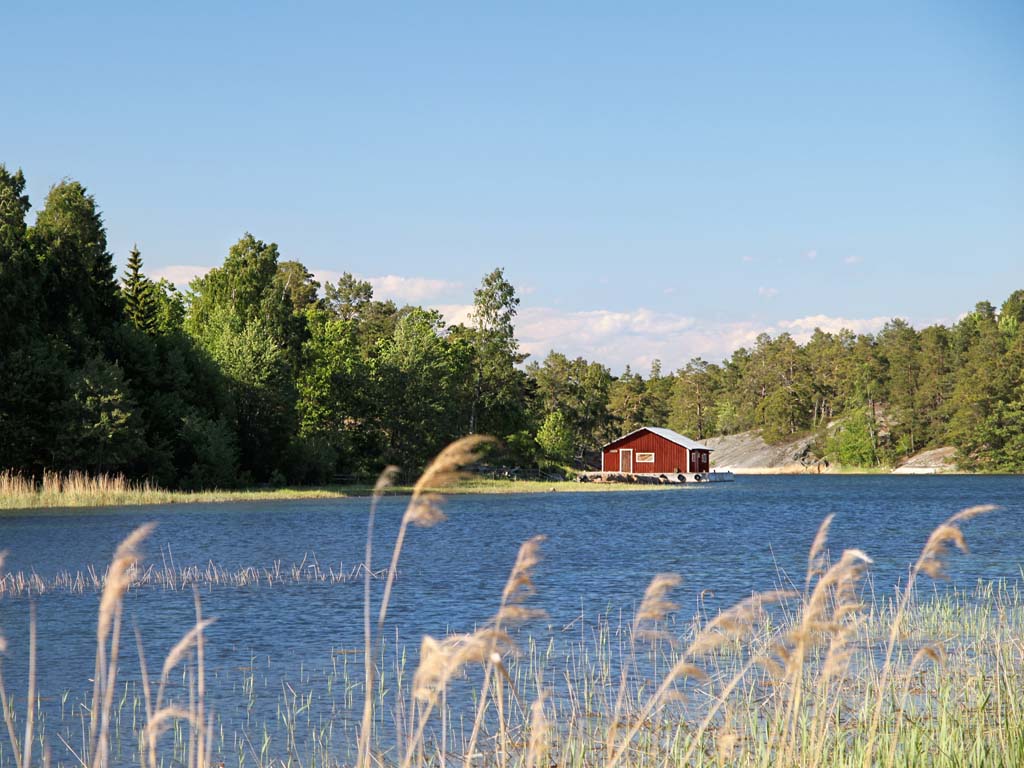21-08-2029 september kör vi en Digital workshop om Vattenresiliens i Kustnära Omvandlingsområden

Workshopen är en del av projektet TRANSWATER och vi diskuterar kring de ökande vattenutmaningarna i de kustnära övergångszonerna i Stockholmsregionen/ Sverige.
Läs mer och anmäl dig här:
Fler Nyheter
08/02/21 - 09:12
Framtidens utbildning inom odling är här!
Väddö folkhögskola har i samarbete med Campus Roslagen/Utvecklingscentrum för vatten samt branschen tagit fram Yrkeshögskoleutbildningen till akvaponiingenjör.
Utbildningen till akvaponiingenjör är helt unik i sitt slag i Sverige och hösten 2021 startar den första utbildningsomgången.
Utbildningen är bred och leder till yrken inom olika områden. Dels till yrket som odlingsspecialist inom akvaponiska system men du kan även jobba inom bland annat växthusnäringen, akvakultur och grönsaksodling.
Läs mer om utbildningens innehåll, kursinformation och anmälan här.
25/01/21 - 17:54
Nya webinarier om Akvaponi
Utvecklingscentrum för Vatten anordnar tre nya webinarier inom temat Akvaponi
Onsdag 10 februari, kl. 13.00-14.30
Praktisk fiskskötsel – Martin Franzen, Akvarievärlden Uthyrning
Måndag 15 februari, kl. 13.00-14.30
Praktisk växtskötsel – Helen Rolandsdotter, Väddö hälsoträdgård.
Osndag 24 februari, kl. 13.00-15.00
Akvaponi i samhällsplanering – Per Persson, Björkö Landsbygdsutveckling.
Läs mer och anmäl dig här.
Välkommen!
Alla webinarier är kostnadsfria och hålls på Svenska.

25/09/20 - 13:19
"Akvaponi I Roslagen” participates to #EUinmyregion campaign
How the aquaponics helps complying with the sustainable development goals
With the project “Aquaponics in Roslagen” we aim to raise awareness around the social and
environmental challenges facing the food sector and the importance of adopting circularity
processes, to spread information about aquaponics and inspire different actors to adopt this
type of farming technique.
The food sector is called to face many challenges such as an increasing world population,
70% of which will live in cities and an overuse of our resources e.g. 70% of the world’s fish
stock is either fished at its limit or over fished.
Agriculture more than other sector depends on weather and climate. It will be particularly
impacted by climate change, some of its consequences being desertification, land erosion,
droughts.
Moreover, Sweden strongly depends on food imports, especially for fish, fruit and vegetables,
this contributing to CO2 emissions but also undermining the security of the Swedish food
system.
There is the need to transition towards a more sustainable and resilient food system, possibly
bringing food production closer to the consumer.
Aquaponics is a circular farming method that allows saving of water and nutrients. It
combines the culture of fish or other aquatic species with the farming of vegetables. Nutrients
rich water from fish culture flows to the growing beds and then sent back to the fish in a
circular loop. Bacteria are the stars of this system: They are responsible of the conversion of
ammonia into nitrites and then nitrates, a non-toxic form of nitrogen.
The ecosystem fish-bacteria-plant is a very sensitive one and is based on an equilibrium of
nutrients and water parameters.
How aquaponics contributes to the agenda 2030:
- • Aquaponics uses only 10% of the water used in traditional agriculture (FAO, 2014)_ SDG 6
- • Soil-less agriculture halts the depletion of soil nutrients_SDG 13, 15
- • No harmful fertilizers run off into water bodies. In traditional agriculture, farmers have to use fertilizers in order to maximize the production. The excess of fertilizers goes then to our water bodies, causing eutrophication and in extreme cases to the biological death of the water source_ SDG 14
- • In an aquaponic system the wastewater from fish is not only controlled but reused, being this an alternative and more environmental-friendly method of fish farming_ SDG 6 & 14
- • Thanks to the symbiosis between fish and vegetables, in aquaponics it is impossible to use antibiotics for fish, contrary to sea fish farming. This means that good conditions for the fish health need to be respected, being this a guarantee both for the end consumer and under the aspect of animal protection_SDG 3, 14
- • It is possible to produce in the city where the arable land available is quite limited thanks to the possibility offered by the vertical farming_ SDG 2, 11
- • Food transportation contributes largely to CO2 emissions in the atmosphere. By taking food production closer to the consumers aquaponics can have a positive effect also on this aspect_SDG 11,12,13
- • Aquaponics can be a way to ensure food security: By being able to cultivate all year around in controlled conditions that do not depend on external and climate factors we can prevent the interrumption of the food chain, particularly important under pandemics times_SDG 2
- • Soil-less farming methods are suitable for any gender, age, and even allow people with disability to work in this field since they don’t require all the movements needed in traditional agriculture_SDG 10

16/06/20 - 10:17
Vattendagar
Annorlunda Vattendagar
På grund av situationen med coronaviruset och covid-19 kör vi Vattendagarna något annorlunda i år. Det blir Vatteninfo som genomför dagarna och aktuell information och vilka dagar som gäller hittar du här.




